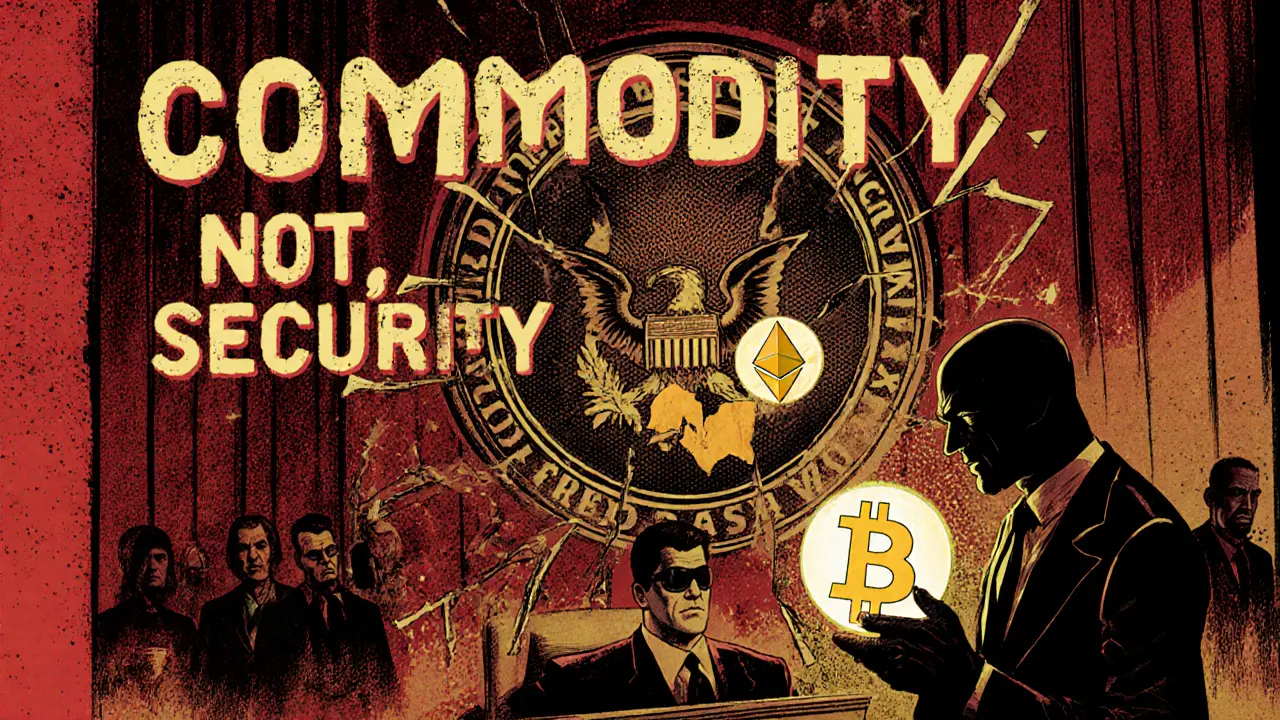
Bitnomial Margin Efficiency Calculator
Calculate Your Futures Position Size
See how much leverage you can get by using Bitcoin or Ethereum as margin collateral on Bitnomial.
Results
Bitnomial isn't just another crypto exchange
If you're looking for a crypto platform that lets you trade Bitcoin, Ethereum, or even XRP with real ownership of the asset at settlement, Bitnomial is the only U.S.-based exchange that makes this possible. Unlike Binance, Coinbase, or Kraken - where you’re mostly trading paper contracts - Bitnomial delivers actual cryptocurrency to your wallet when your futures contract expires. This isn’t a gimmick. It’s a regulatory first, built from the ground up for institutions that need transparency, compliance, and direct asset exposure.
What makes Bitnomial different?
Most crypto futures exchanges settle in cash. You bet on price movement, and you get dollars. Bitnomial settles in Bitcoin, Ethereum, Solana, Cardano, and even USDC. If you buy a 1 BTC futures contract and hold it to expiry, you don’t get $60,000. You get one actual Bitcoin. That’s physical delivery. And it’s the only reason why hedge funds, treasury departments, and crypto-native firms trust Bitnomial with millions in capital.
Bitnomial’s product suite is split into two core systems: the Crypto Complex® and the Stablecoin Complex™. The Crypto Complex gives you futures on major altcoins like XRP and ADA - the first ever U.S.-regulated versions. The Stablecoin Complex is even more groundbreaking: it offers physically delivered USDC futures, letting institutions hedge stablecoin exposure without touching a centralized exchange. This matters because corporate treasuries are now holding billions in USDC. Bitnomial gives them a way to manage risk without leaving the regulated financial system.
Regulatory muscle you won’t find elsewhere
Bitnomial isn’t just compliant - it’s fully licensed. In 2020, it became a Designated Contract Market (DCM) under the CFTC. In 2022, it became a Futures Commission Merchant (FCM). And in 2023, it became the first crypto-native company to register as a Derivatives Clearing Organization (DCO). That’s a triple crown in U.S. derivatives regulation. No other crypto exchange has all three. This means Bitnomial handles everything: trading, clearing, and settlement - under one roof, with full oversight.
That’s why, in September 2025, Bitnomial made history again: it became the first CFTC-regulated exchange to accept Bitcoin and Ethereum as margin collateral. Before this, you had to sell your crypto, convert to USD, and deposit cash to trade futures. Now, you can post your BTC or ETH directly as margin. The platform applies haircuts - like traditional commodity markets - to account for volatility. But the result? You unlock capital efficiency. A fund holding $10 million in Bitcoin can now trade $20 million in futures without selling a single coin. That’s game-changing for institutional traders.
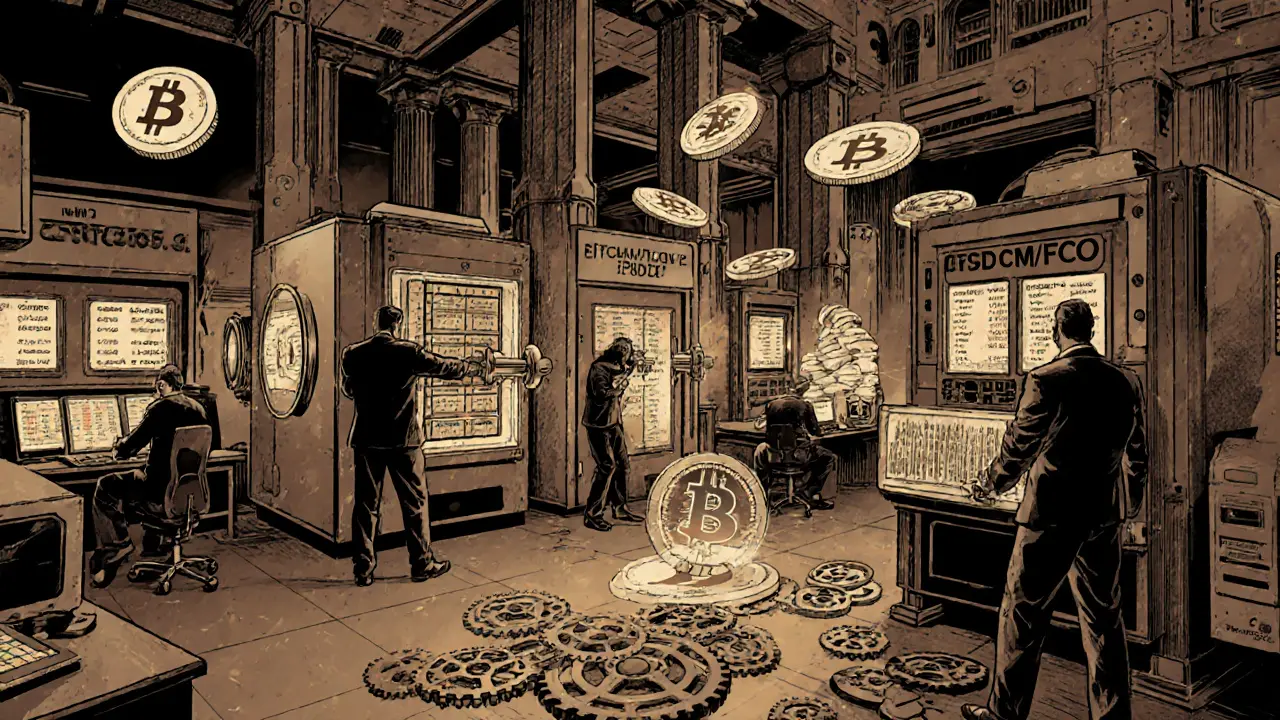
Perpetual futures, done right
Perpetual contracts - the most popular product on offshore exchanges - are notoriously volatile. Most use 8-hour funding rates that spike unpredictably. Bitnomial’s version is different. It uses an 8-hour funding interval too, but it’s tied to real interest rates and basis spreads. This keeps prices aligned with the spot market without wild swings. Plus, it uses a 25-year term structure, meaning you don’t have to roll contracts every month. No more surprises. No more hidden costs. Just continuous exposure.
The platform also unifies liquidity. Instead of having separate spot and futures markets, Bitnomial merges them into one instrument. That means tighter spreads, deeper order books, and lower slippage - especially for large trades. For institutional traders moving $5 million or more, this isn’t a nice-to-have. It’s a necessity.
Botanical: The retail play
While Bitnomial’s core audience is institutions, it’s not ignoring retail. In October 2024, it launched Botanical - a new platform built for individual traders who want perpetual futures without using offshore exchanges or VPNs. Backed by a $25 million funding round led by Ripple, Botanical offers the same regulated, physically settled contracts as Bitnomial, but with a simpler interface. It’s designed to compete with Binance Perpetuals, but without the legal gray zones. If you’re a U.S. trader tired of offshore platforms and want real compliance, Botanical is the first real alternative.
Regulatory battles and why they matter
Bitnomial’s success hasn’t come without friction. In August 2024, it self-certified XRP futures with the CFTC. The SEC immediately pushed back, claiming XRP futures are “security futures” under their jurisdiction. Bitnomial didn’t back down. In October 2024, it sued the SEC, calling their claim an “overreach.” The case is ongoing, but the implications are huge. If Bitnomial wins, it sets a precedent: crypto derivatives are commodities, not securities. That could reshape how the entire U.S. market is regulated.
Even if you don’t trade XRP, this matters. If the SEC can block any crypto derivative just by calling it a security, the market stalls. Bitnomial is fighting to keep the door open for innovation under clear rules - not arbitrary enforcement.
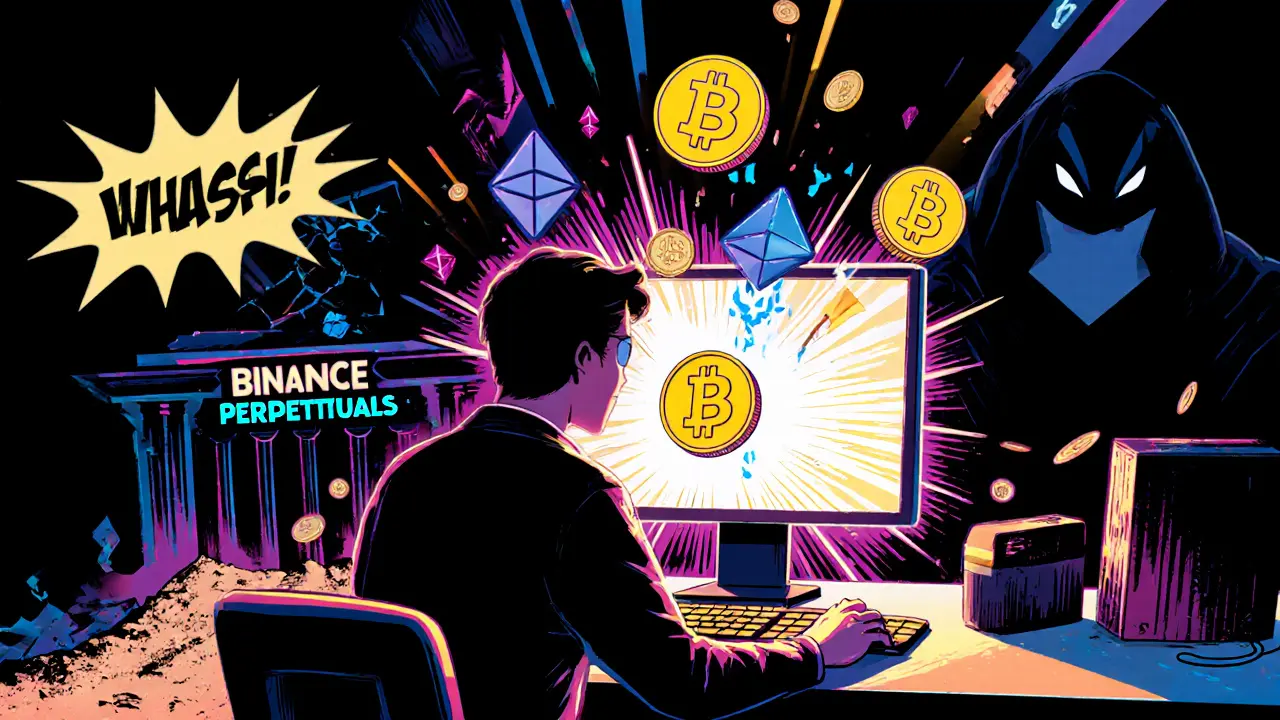
Who is this platform for?
Bitnomial isn’t for beginners. If you’re buying Bitcoin on Coinbase because you think it’s going to $100k next month, this isn’t your platform. You won’t find one-click buys, mobile apps, or social trading feeds. Bitnomial’s interface is clean, professional, and built for traders who understand terms like “margin,” “liquidation price,” and “funding rate.”
It’s ideal for:
- U.S.-based hedge funds managing crypto exposure
- Corporate treasuries holding USDC or BTC as reserves
- Professional traders who need physical delivery to avoid counterparty risk
- Investors who want to use crypto as margin without selling their holdings
If you’re a retail trader looking for low fees and meme coins - look elsewhere. Bitnomial is for those who treat crypto like a commodity, not a gamble.
What’s next for Bitnomial?
With its full CFTC license stack, Bitnomial is positioned to lead the next wave of U.S. crypto derivatives. Expect more stablecoin futures - possibly USDT, DAI, or even regulated fiat-backed tokens. The partnership with Ripple suggests more XRP-related products are coming, even amid legal pressure. And Botanical could become the gateway for retail traders to enter regulated markets without leaving the U.S.
As other exchanges - like CME or Nasdaq - try to enter the crypto derivatives space, they’ll have to build everything from scratch. Bitnomial already has the infrastructure, the licenses, and the track record. That’s not just an edge. It’s a moat.
Final verdict: Is Bitnomial worth it?
Yes - if you need regulated, physically settled crypto derivatives. No - if you just want to buy and hold Bitcoin.
Bitnomial is the only U.S. exchange that gives you the same tools as offshore platforms - without the legal risk. It’s not flashy. It’s not easy. But for serious traders, it’s the most trustworthy, transparent, and technically advanced platform in the market. If you’re trading crypto futures and care about ownership, compliance, and capital efficiency, Bitnomial isn’t just an option. It’s the standard.
Does Bitnomial offer spot trading?
No. Bitnomial only offers derivatives - futures, options, and perpetual contracts. You cannot buy or sell Bitcoin directly on the platform. All trades are based on contracts that settle in physical cryptocurrency or USDC.
Can I use Bitcoin as margin on Bitnomial?
Yes. Since September 2025, Bitnomial is the first CFTC-regulated exchange to accept Bitcoin and Ethereum as margin collateral. You can post your crypto holdings directly to open positions, avoiding the need to convert to USD. Haircuts are applied based on volatility, similar to how gold or treasuries are treated in traditional markets.
What’s the difference between physical delivery and cash settlement?
Cash settlement means you get paid in USD based on price movement. Physical delivery means you receive the actual asset - like 1 BTC or 1000 USDC - when your contract expires. Bitnomial is the only U.S. exchange that offers physical delivery across all its products. This eliminates counterparty risk and gives you direct ownership.
Is Bitnomial safe from hacks or insolvency?
Yes - because it’s regulated. Bitnomial is a CFTC-registered DCM, FCM, and DCO. It operates its own clearinghouse and settlement system, with segregated client assets and mandatory capital reserves. Unlike bankrupt exchanges like FTX, Bitnomial’s infrastructure is built to withstand financial stress, with real-time risk monitoring and collateral management under federal oversight.
Can non-U.S. traders use Bitnomial?
No. Bitnomial is licensed only for U.S.-based participants. The platform enforces strict KYC and location verification. Even if you’re a U.S. citizen living abroad, you must be physically located in the United States to trade. This is part of its compliance with CFTC rules.
What fees does Bitnomial charge?
Fees vary by product and volume. Maker fees start at 0.02%, taker fees at 0.05%. Institutional clients with high trading volume can negotiate lower rates. There are no deposit or withdrawal fees for crypto, but network fees apply. USDC withdrawals are processed directly through Circle’s infrastructure, ensuring fast, low-cost settlement.
Does Bitnomial have a mobile app?
No. Bitnomial and Botanical are web-based platforms designed for professional traders. The interface is optimized for desktop use with advanced charting, order types, and API access. There is no official mobile app, and third-party apps are not supported.
How does Bitnomial handle liquidations?
Liquidations follow traditional commodity market rules. If your margin falls below maintenance levels, the clearinghouse automatically closes your position using the most liquid market price. Unlike some exchanges that use “auto-deleveraging,” Bitnomial uses a centralized, transparent auction system to liquidate positions, ensuring fairness and minimizing market impact.


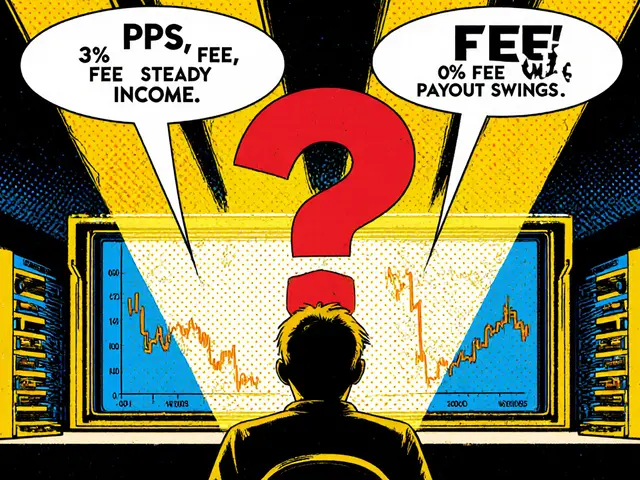
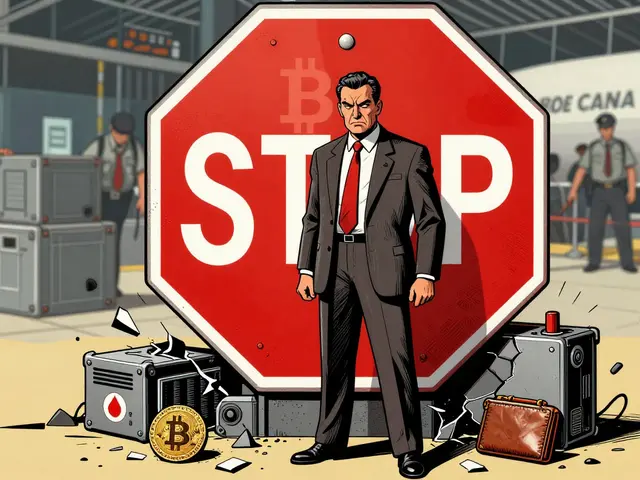


There are 24 Comments
Louise Watson
Liam Workman
Benjamin Jackson
Kevin Mann
Kathy Ruff
Robin Hilton
Grace Huegel
Nitesh Bandgar
Jessica Arnold
Chloe Walsh
Anthony Allen
Megan Peeples
Sarah Scheerlinck
karan thakur
Evan Koehne
Vipul dhingra
Jacque Hustead
Robert Bailey
Wendy Pickard
Jeana Albert
Natalie Nanee
Angie McRoberts
Chris Hollis
Finn McGinty
Write a comment
Your email address will not be published. Required fields are marked *